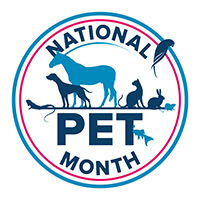April is National Pet Month in the UK and each week SCAS will present a topic related to companion animal welfare, well-being, and the important role they play in the lives of humans. This week we explore the benefits of being a pet owner (by Sandra McCune).

At the Society for Companion Animal Studies (SCAS) we love companion animals! Those of us fortunate enough to share our lives with a pet are the lucky ones. They enrich our lives, make us laugh, offer unconditional love, help to connect us with our neighbours, and dogs motivate us to take more exercise.
Research into the bond between people and pets has been growing rapidly over the last few decades. Many studies have reported benefits of living with a pet or simply interacting with a pet, whether young or old and across socio-economic backgrounds
Pets offer companionship and affection
Loneliness has become an epidemic in our modern world and was made worse by the social restrictions of the COVID19 pandemic. Its impact can have devastating effects on health and wellbeing.

- The BBC’s 2018 Loneliness Experiment found that a third of people surveyed feel lonely often or very often
- Research suggests that social isolation affects life expectancy as much as smoking and obesity.
- Studies show lonely people are more likely to suffer from dementia, heart disease and depression.
Owners have a strong sense that pets positively impact their emotional wellbeing. A US based consumer survey in 2018, found that:
- 85% of respondents agreed interaction with pets can help reduce loneliness
- 76% agreed human-pet interactions can help address social isolation
- 72% believed human-animal interaction is good for their community
Of the pet-owning respondents:
- 80% of pet owners said their pet makes them feel less lonely
- 54% said their pet helps them to connect with other people
Pets provide love and comfort and can boost our moods

The social restrictions of the Covid19 pandemic left many people feeling isolated and lonely. Many owners reported that their pets reduced the sense of loneliness and fulfilled their need for love.
Individuals enduring the pandemic alone found their pets to be a tremendous source of comfort despite the additional challenges of looking after them under restricted conditions. One cat study showed that for people living with cats, interaction with them reduced negative moods such as anxiety and depression.
Pets may help us live healthier lives
Beyond emotional support, life with a pet can bring benefits for our physical health, too. Did you know pet owners have been estimated to save the NHS in the UK an estimated £2.45billion each year as they tend to visit doctors less often?
The mutuality of our relationship with companion animals makes it very special. The benefits we receive from them appear to be linked to the quality of the relationship we share and how attached we are to each other. The responsibilities of caring for a companion animal are significant and the decision should only be taken after careful consideration.
Pets comfort us and keep us company as we age
As we age, and our network of friends tends to shrink, companion animals may play an especially important role supporting active, healthy aging. Sharing our lives with pets may provide physical, social and emotional benefits. These include:

- Offering opportunities to nurture and feel needed.
- Providing a structure and routine for daily life.
- Giving and receiving affection.
- Reducing loneliness and feelings of isolation.
Increasingly, research shows how relationships with pets may support successful aging:
- Pet ownership makes a significant difference in survival rate after a heart attack. 94% of heart patients with pets were still alive a year later, compared to 72% without pets.
- Pet owners over 65 are more likely to maintain the activities of daily living, such as climbing stairs, preparing meals and bathing independently than non-pet owners.
- People and pets can bring each other mutual support as they both age.
- Older, homebound pet owners have been shown to be better at paying attention, remembering details, and learning from past experiences than those who don’t own pets.
Dog ownership and particularly dog walking help to connect people in neighbourhoods. You and your dog will enrich the social connections in your community that increase getting to know people, making friends and social support.

If you’d like to know more about SCAS and our work, please be sure to visit our website and conference page. Take out SCAS membership now to receive a discounted conference registration as well as other benefits such as free access to monthly SCAS webinars throughout the year from expert speakers.
We hope you will join us at this year’s virtual SCAS conference on Sunday, 17th September. Looking forward to “seeing” you there!
Please remember that you can also join the SCAS social media community by following us on Facebook and Twitter.

